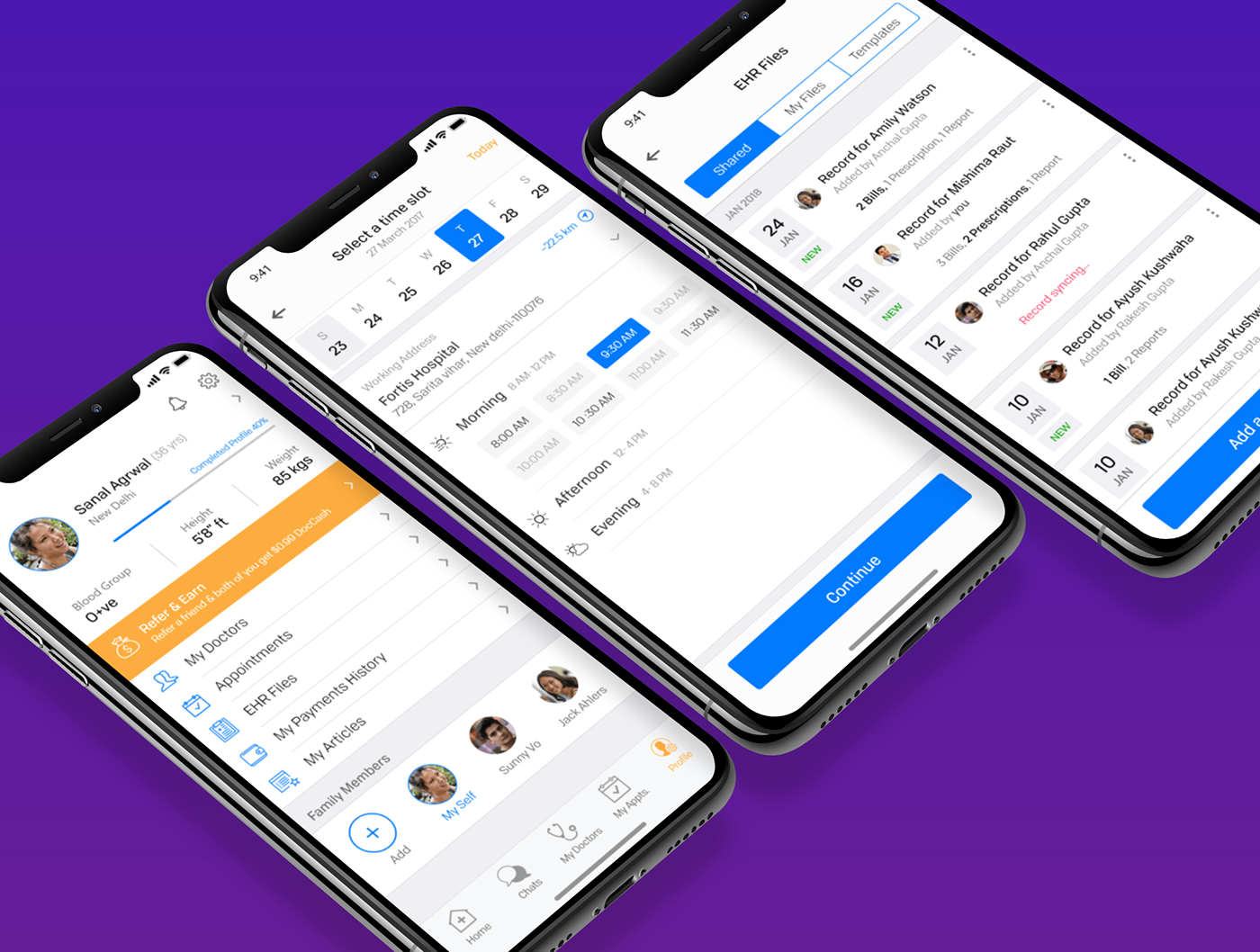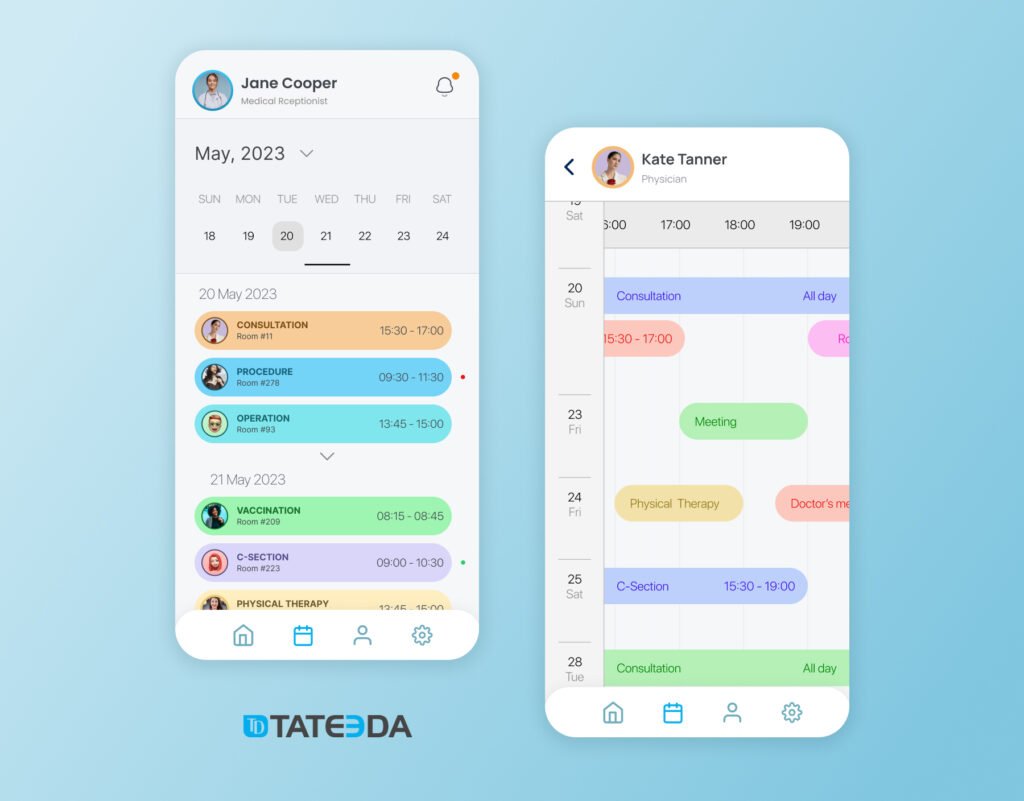Reinvent Patient Treatment with a Mobile App for Clinics: Leading Features to Consider
Reinvent Patient Treatment with a Mobile App for Clinics: Leading Features to Consider
Blog Article
The Future of Health Care: Why Clinics Required a Mobile Application Today
As the health care landscape proceeds to evolve, centers face placing stress to adjust to person assumptions for higher convenience and access. The integration of mobile applications can serve as an essential strategy for improving client interaction and simplifying procedures.
Transforming Patient Assumptions
As the landscape of medical care advances, client assumptions are undertaking a substantial transformation. Today's individuals are significantly looking for convenience, ease of access, and customized care.
Moreover, clients are becoming more notified and encouraged, frequently researching problems and treatments on-line before assessments. This increased recognition is coupled with a need for openness in health care processes, including expense quotes and therapy alternatives. Because of this, carriers are forced to adjust by adopting digital devices that improve the client experience.
The assumption for efficient and prompt communication has actually never ever been higher, with lots of people thinking about responsiveness a crucial component of top quality treatment. mobile app for clinics. In this evolving landscape, healthcare companies must acknowledge these changing assumptions and utilize mobile applications to promote a much more patient-centric technique, guaranteeing that they not only meet however surpass the standards set by today's enlightened consumers
Enhancing Patient Involvement

Mobile applications promote interaction in between patients and doctor, allowing real-time visit organizing, suggestions for drug adherence, and straight messaging functions. These functionalities not only enhance convenience but additionally build a sense of liability among clients. Mobile applications can provide academic material customized to specific needs, aiding individuals much better comprehend their conditions and treatment options.
The integration of gamification components within medical care apps can also inspire clients to involve in healthy actions, enhancing favorable way of life changes. By tracking development and gratifying achievements, individuals are much more likely to remain dedicated to their health goals. Inevitably, enhancing client interaction through mobile applications results in enhanced health outcomes, better client complete satisfaction, and a more joint medical care experience. Centers that prioritize this element will likely see a considerable influence on the high quality of treatment delivered.
Enhancing Center Operations
Simplifying facility procedures is essential for improving operations efficiency and maximizing client treatment. The application of mobile applications can substantially decrease management worries, permitting medical care service providers to focus a lot more on client interactions. By automating visit organizing, individual check-ins, and billing processes, centers can minimize wait times and enhance overall functional effectiveness.
Mobile applications also assist in real-time access to patient documents, enabling healthcare specialists to make enlightened decisions quickly. This immediacy not just enhances the high quality of care yet also minimizes the probability of errors connected with misplaced or outdated details. Moreover, leveraging mobile modern technology sustains a much more orderly approach to managing client follow-ups and treatment plans, guaranteeing that no critical steps are overlooked.
This permits for timely replenishment and assists avoid disruptions in client treatment due to equip scarcities. By integrating these performances into their everyday operations, clinics can develop a more natural and reliable environment, eventually leading to improved individual results and complete satisfaction.
Improving Interaction Channels
Effective communication is regularly cited as a cornerstone of top quality healthcare distribution. In today's fast-paced medical atmosphere, mobile applications can dramatically boost interaction networks between facilities, patients, and healthcare providers. useful site By integrating mobile applications into their procedures, clinics can help with real-time interactions, ensuring that patients get prompt info concerning their consultations, examination outcomes, and treatment plans.
Mobile apps likewise encourage people to connect directly with their healthcare groups with safe messaging attributes. This direct line of communication fosters a feeling of interaction and permits immediate information of problems, which can lead to far better adherence to treatment methods. Press notices can advise individuals of upcoming appointments or medication schedules, minimizing no-show rates and boosting site here general health and wellness end results.

Remaining Competitive in Health Care
In a rapidly developing healthcare landscape, companies need to focus on development and versatility to keep an one-upmanship. The integration of mobile applications right into medical care solutions is no more optional; it is necessary for facilities intending to enhance individual interaction, simplify operations, and enhance general service shipment.
As patients progressively count on electronic platforms for wellness administration, centers that fail to embrace mobile technology threat falling back. A well-designed mobile app can supply attributes such as visit organizing, telemedicine consultations, and access to clinical records, giving clients with benefit and fostering commitment.

Competitors are additionally purchasing mobile options, so remaining ahead needs continual renovation and staying notified regarding technical innovations. Facilities should not only apply mobile applications but likewise take part in routine updates and improvements. Ultimately, the effective assimilation of mobile technology will differentiate forward-thinking healthcare organizations and established the benchmark for patient-centric care in an electronic globe.
Conclusion
In conclusion, the combination of mobile applications in clinics is vital to deal with the progressing landscape of person assumptions. Ultimately, the critical execution of mobile applications represents a critical step towards delivering available and tailored healthcare, consequently fulfilling the needs of today's encouraged clients.
Inevitably, boosting individual interaction with mobile applications leads to boosted health outcomes, better client contentment, and a more collaborative healthcare experience.Mobile apps likewise promote real-time accessibility to individual documents, enabling health care specialists to more tips here make educated decisions swiftly. In today's busy clinical environment, mobile applications can significantly enhance interaction channels in between clinics, people, and health care service providers.Mobile apps additionally equip patients to interact directly with their health care teams through protected messaging features. Ultimately, the critical execution of mobile applications represents an essential step toward delivering obtainable and customized health care, therefore meeting the requirements of today's encouraged clients.
Report this page